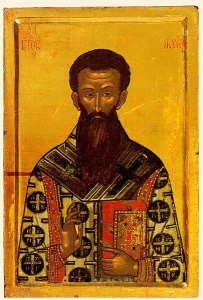 Matthew…begins with those born first, and makes no mention of anyone born before Abraham.
Matthew…begins with those born first, and makes no mention of anyone born before Abraham.
He traces the line down from Abraham until he reaches Joseph to whom, by divine dispensation, the Virgin Mother of God was betrothed (Matt. 1:1-16), being of the same tribe and homeland as him, that her own stock may be shown from this to be in no way inferior.
Luke, by contrast, begins not with the earliest forebears but the most recent, and working his way back from Joseph the Betrothed, does not stop at Abraham, nor, having included Abraham’s predecessors, does he end with Adam, but lists God among Christ’s human forebears (Lk. 3:23-38);
wishing to show, in my opinion, that from the beginning man was not just a creation of God, but also a son in the Spirit, which was given to him at the same time as his soul, through God’s quickening breath (Gen. 2:7).
It was granted to him as a pledge that, if, waiting patiently for it, he kept the commandment, he would be able to share through the same Spirit in a more perfect union with God, by which he would live forever with Him and obtain immortality.
By heeding the evil counsel of the pernicious angel, man transgressed the divine commandments, was shown to be unworthy, forfeited the pledge, and interrupted God’s plan.
God’s grace, however, is unalterable and His purpose cannot prove false, so some of man’s offspring were chosen, that, from among many, a suitable receptacle for this divine adoption and grace might be found, who would serve God’s will perfectly, and would be revealed as a vessel worthy to unite divine and human nature in one person, not just exalting our nature, but restoring the human race.
The holy Maid and Virgin Mother of God was this vessel, so she was proclaimed by the Archangel Gabriel as full of grace (Lk. 1:28), being the chosen one among the chosen, blameless, undefiled and worthy to contain the person of the God-Man and to collaborate with Him.
Therefore God pre-ordained her before all ages, chose her from among all that had ever lived, and deemed her worthy of more grace than anyone else, making her the holiest of saints, even before her mysterious childbearing.
For that reason, He graciously willed that she should make her home in the Holy of Holies, and accepted her as His companion to share His dwelling from her childhood.
He did not simply choose her from the masses, but from the elect of all time, who were admired and renowned for their piety and wisdom, and for their character, words and deeds, which pleased God and brought benefit to all.
Gregory Palamas (1296-1359): Homily on the Old Testament Saints. From Saint Gregory Palamas: The Homilies (Mount Thabor Publishing, 2009).
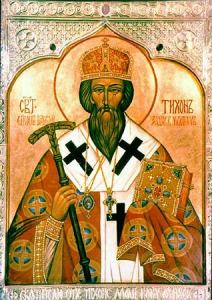 To whom is the Gospel preached?
To whom is the Gospel preached?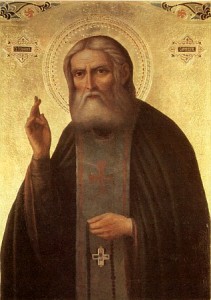
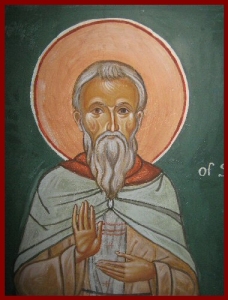 The energy of the Holy Spirit, which we have already mystically received in baptism, is realized in two ways.
The energy of the Holy Spirit, which we have already mystically received in baptism, is realized in two ways. Polyelaios – the main chandelier in the Nave of the Church [translator’s note].
Polyelaios – the main chandelier in the Nave of the Church [translator’s note].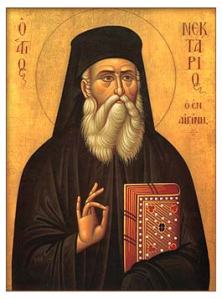
 Continued from
Continued from  Observe the difference between the presence of the life-giving spirit and the presence of the spirit that deadens and destroys your soul.
Observe the difference between the presence of the life-giving spirit and the presence of the spirit that deadens and destroys your soul.







